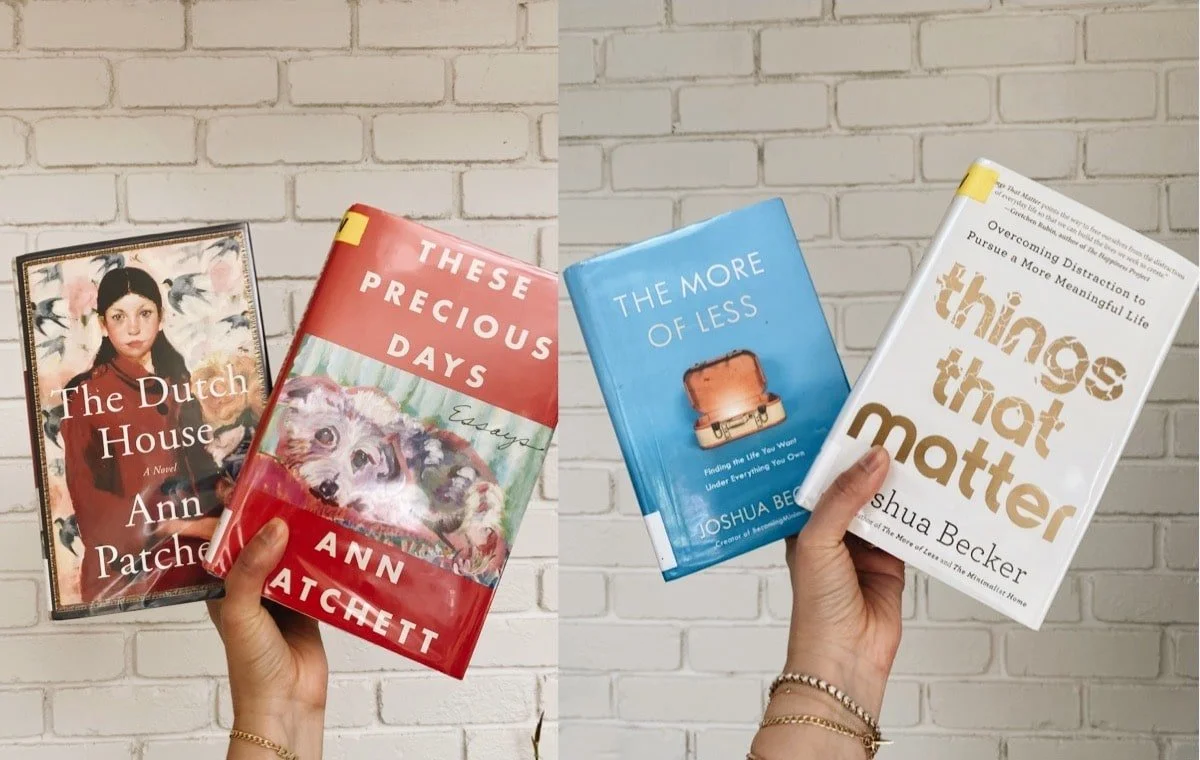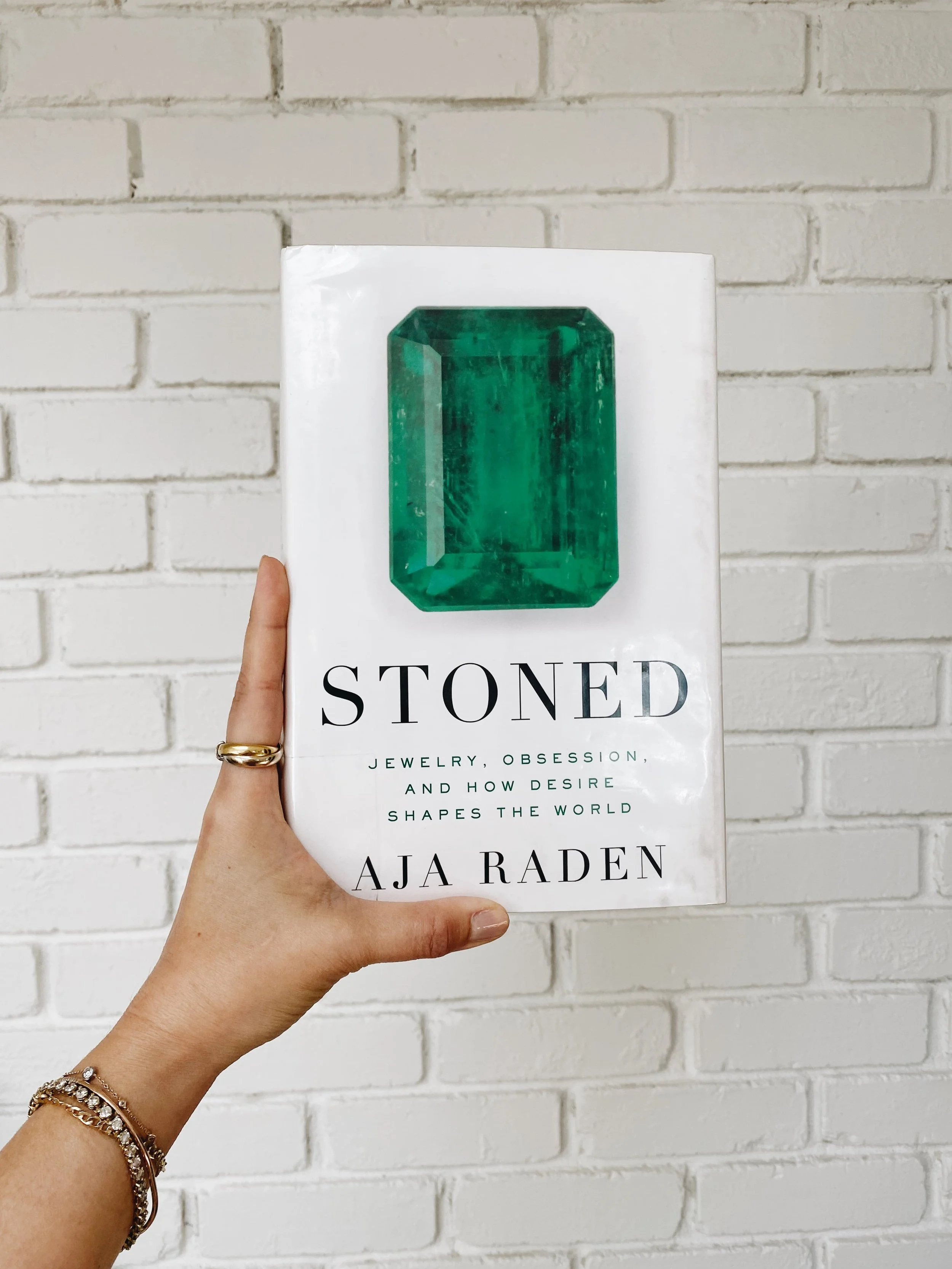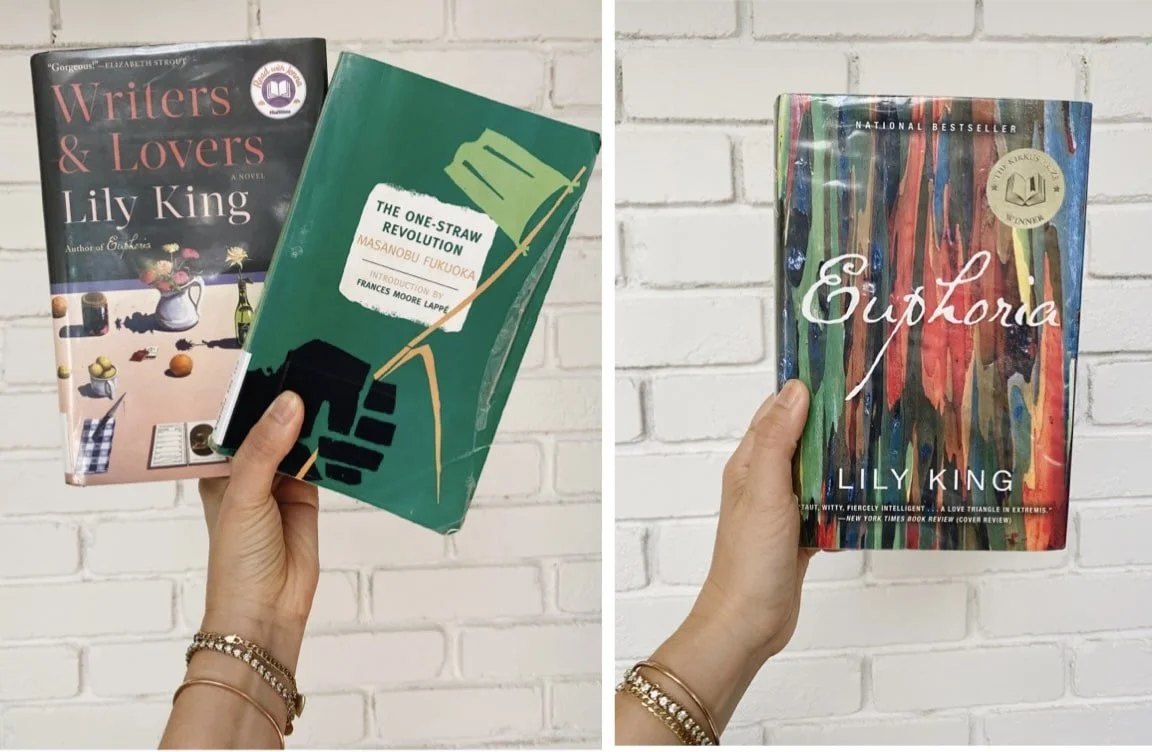I think my reading speed has increased because I was able to finish an all-time high of 9 books this month. I was also probably motivated by the fact that I had renewed a bunch of these books the maximum number of times so I was under a deadline so to speak.
These Precious Days by Ann Patchett: I’ve read Bel Canto in the past, but I’m not a huge Patchett fan or anything. But I was recently reintroduced to the author by Kat, who wrote about Patchett’s essay My Year of No Shopping (a NYT opinion article), and decided to place a hold on her newest nonfiction book These Precious Days. And boy, I’m so glad that I did. I love love loved this book of essays. All of them were good but my favorites were How to Practice (about her version of Swedish Death Cleaning—clearing out your house so others don’t have to after your death), There Are No Children Here (about her choice to go child-free), and These Precious Days (about her relationship with her friend Sooki who was battling cancer). I loved looking into the life and mind of a writer (to see what makes her tick so to speak), and the eloquent way she’s able to express herself. This is definitely one of my favorite books I’ve read this year and I’ll probably buy it someday so I may reread it again and again. I liked it so much I decided to borrow her earlier book of essays called This is the Story of a Happy Marriage.
The Dutch House by Ann Patchett: So after reading her essays, in which she mentions her latest book, The Dutch House, I decided to read that too. And having read the essays first, I can see how she infuses certain parts of herself (and her thinking) into these fictional characters. Again, I’m not a huge fiction reader but I enjoyed this book about a brother telling of his and his sister’s life story revolving around a beautiful house called the Dutch House. I liked it but not enough to go out and borrow the rest of Patchett’s fictional books.
The More of Less by Joshua Becker: I’ve been striving to be a “minimalist” almost from the beginning of this blog. Having moved into our first home, filling it to the brim with stuff, and then selling the house and donating all the stuff (and let me tell you it was a mountain of stuff), to then live in a trailer for 3 years (with some stuff in storage) I’m keenly aware of how much material possessions I have and how easily it can accumulate. For long time readers you know I’ve been talking about trying to buy less for years (years!). The last couple years I was definitely on the upswing of excess (c’mon I’m a blogger that reviews new things, plus there’s a pandemic!—my excuses). And this year I’m firmly on the downswing towards less (#LessNew2022). So I can’t say this book about minimalism from the king of minimalism (who’s blog I still read occasionally) held any new ideas for me. But it did help reinforce my resolve to buy less and to get rid of things when I can (though I can proudly say that my Goodwill donation bags that used to number in the twenties every year are now down to less than 5—and these are grocery paper bags). This book was a good reminder that excess doesn’t equal success, that there are more valuable pursuits available than the purchase and accumulation of material possessions (plus how those possessions are generally a huge time suck), and that generosity leads to contentment. I also really liked this quote that Becker used from Patrick Rhone’s book Enough: “Enough comes from trying things out…It comes from having less, trying more, then reducing to find what is just right. It comes from letting go your fear of less. It also comes from letting go of the false security of more…Enough is hard work…The goal then is not to find what is or will be enough forever. That is impossible. The goal is to discover the tools and strategies you need to find what it enough for you right now and provide the flexibility to adjust as the conditions change.” Finding my enough has felt like a constant struggle, and now I realize why. It’s because it is not a set point, but rather something that fluctuates with life. I still have more than enough, even though I have empty closet space and storage cabinets (which I work really hard not to fill). And at times I still feel like I have too much. I guess that’s how it goes.
Things That Matter by Joshua Becker: This is Becker’s newest book that I decided to read (I actually read his earlier book while waiting for this newest one to get to the library). Well I like his message, though its a lot like Essentialism, which is to cut out the nonessential (or what Becker calls distractions) to live for the things that matter (which to Becker is service). In Essentialism the author McKeown puts it as “operating at your highest point of contribution” which I like better because it seems more general and less preachy (Becker former job was as a pastor so of course he’s going to be on the preachy side). Anyway Becker goes through the pitfalls of these eight distractions: 1) Fear (fear of trying, fear of failing, etc.); 2) Past mistakes (where he includes learning to forgive/let go of mistakes and even past trauma); 3) Pursuit of Happiness (as in the pursuit of selfish pleasures and promotes instead dedicating oneself to a greater cause); 4) Pursuit of money; 5) Pursuit of material possessions; 6) Pursuit of applause (the pitfalls of praise); 7) Pursuit of leisure (where he views leisure activities like vacation and watching tv as a “booster for long term productivity in pursuit of meaningful goals but not a meaningful goal in itself"; 8) And tech (mostly smartphones). These were all good reminders, though again this book didn’t really give too many pointers on how to quit some of these addictive distractions (phones, mindless shopping, forgiving a heinous act against you, etc.) and more was like “you should.” And that’s not super helpful because it might be inspiring but I think we all know what our bad habits are and why we need to let them go. I think Daring Greatly by Brene Brown is a good book for getting over your fear of failing (with concrete steps), and Quit Like a Woman is better at trying to change your lifestyle to quit addictive distractions (she’s an advocate of meditation and morning routines). This book is all surface level stuff without too many concrete guidelines but it doesn’t hurt to be reminded of these distractions. I’m glad I read these two Becker books though I wouldn’t call them life-changing and would not add them to my personal library.
Stoned by Aja Raden: Contrary to the title, this book isn’t about weed. Rather its about jewels and gemstones. As I mentioned in my post about selling jewelry to the RealReal, I’m very much interested in gemology (and am considering getting a GIA certification in the future). Well this book about jewels is right up my alley, and what makes it super interesting is that it’s more about how jewelry has shaped the history of the world (and not about the details of gemstones themselves). She begins the book about the myth of scarcity of diamonds (in actuality diamonds are plentiful, and the DeBeers cartel—her words—purposely keeps the supply low to keep prices high) and the marketing campaign that made diamond engagement rings a must. TBH I was a lot less in love with diamonds after reading this. She also talks about how South American emeralds funded the rise of Spain as a world super power, and how pearls (coveted by Elizabeth I of England) brought about Spain’s downfall. That’s just a couple of the really fascinating history lessons she goes through. And what makes the whole book really fun to read is her humorous and witty voice. I only wished I learned history like this when I was younger. In the end, even though this book is about jewels, it’s really about the value we humans put on these “glittery gravel.” As she puts it, “What makes a jewel? Real jewels are formed less in the earth or a lab than they are in the human mind. The seem powerful…And yet, really they’re just objects…The very purpose and nature of jewels is one and the same: to transfix and reflect. Just like their glittering surfaces, jewels have one, and only one real power: they reflect our desires back to us and show us who we are.” I highly recommend this book to history lovers and gem lovers alike!
The Little Book of Lykke by Meik Wiking: This is the third book of Wiking’s I’ve read (though the second one he published—I read them out of order), and I think my favorite of the bunch. Lykke means happiness in Danish, and it’s about the “secrets of the world’s happiest people” (ie the Danish according to surveys). The factors that he believes that makes people (and a nation of people) happy are: togetherness (social bonds), money (at least enough for a good standard of living, but of course money doesn’t buy happiness), health, freedom (autonomy in work and life choices), trust (between each other), and kindness. He talks about higher level, government policies that help make a nation happy (free universal health care, free university tuition, paid time off), but he also delves into the little ways we as individuals can be happier (and help our neighbors be happier too). Some of his words hit especially hard during these difficult times in the US (the impending abortion ban and the mass shootings): “My happiness depends on not only on how my family are but also on how my neighbors children fare…And it is judging our societies not by the success of those who finish first but how we lift back up those who fall.” When I think of the lack of trust and kindness ingrained in American society, I feel daunted by the task of trying to change things around for future generations. But at the very least I have to start with me. And on an individual level Wiking reminds me: “Our wealth is not measured by the size of our bank accounts but by the strength of our bonds, the health of our loved ones, and the level of our gratitude.”
Writers and Lovers by Lily King: This novel was also recommended by Kat and I really enjoyed it. I breezed through it in two days! It’s about the life and love life of a writer/waitress. As someone who’s always wanted to be a book writer, this was a little peek into what that kind of lifestyle is about (though of course this is fiction and writers live all kinds of lives).
The One-Straw Revolution by Masanobu Fukuoka: This book is mainly about natural farming (farming with no pesticides, no tilling, and light on the compost) as if written by a Buddhist monk. If you’re not familiar with Buddhism, a lot of the sentiment of doing nothing (Fukuoka calls it “do-nothing farming” though it’s still farming and still work) will sound a little far out there. And even though it was written over 40 years ago a lot of the lessons still apply: “Extravagance of desire is the fundamental cause which has led the world to its present predicament. Fast rather than slow, more rather than less—this flashy development is linked directly to society’s impending collapse. It has only served to separate man from nature. Humanity must stop indulging the desire for material possessions and personal gain and instead move toward spiritual awareness…Material life and diet should be given a simple place. It this is done, work becomes pleasant and spiritual breathing space more plentiful.” This book is more than just about natural farming. It’s about finding happiness in the simple things. I read about these lessons again and again, and I know it in my head. But it’s so hard not to be swayed by the consumer culture of More when I’m bombarded with it everyday. But I have to say, reading these lessons over and over again (whether in the Joshua Becker books or my favorite The Day The World Stops Shopping) has helped me find my way to less (well at least less than 2021) and hopefully helps me continue to instill in me the value (and necessity) of Less.
Euphoria by Lily King: I guess this is my month of reading two books by the same author. I thought Writers and Lovers to be pretty good, but I liked Euphoria more. This fictional book loosely based on the life of Margaret Mead, an anthropologist who studies indigenous Pacific Island cultures, was a story of a love triangle amongst anthropologists set in Papua New Guinea during the 1930’s, when ethnography was still a budding science. I not only enjoyed the story line but also the many views of “primitive” cultures and their clash with Western imperialism.
Did Not Read
The Minimalist Home by Joshua Becker: This was another Becker book I borrowed while waiting for his most recent book (The Things That Matter). This is a more step-by-step guide on how to get rid of things in your house. I couldn’t get through it because it felt a lot like homework and frankly I’m over Becker’s books.


